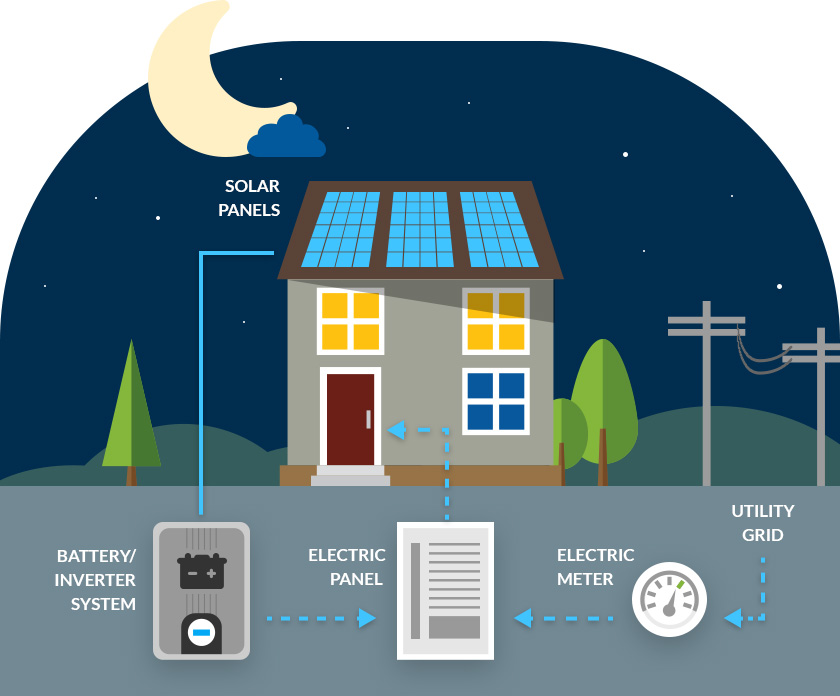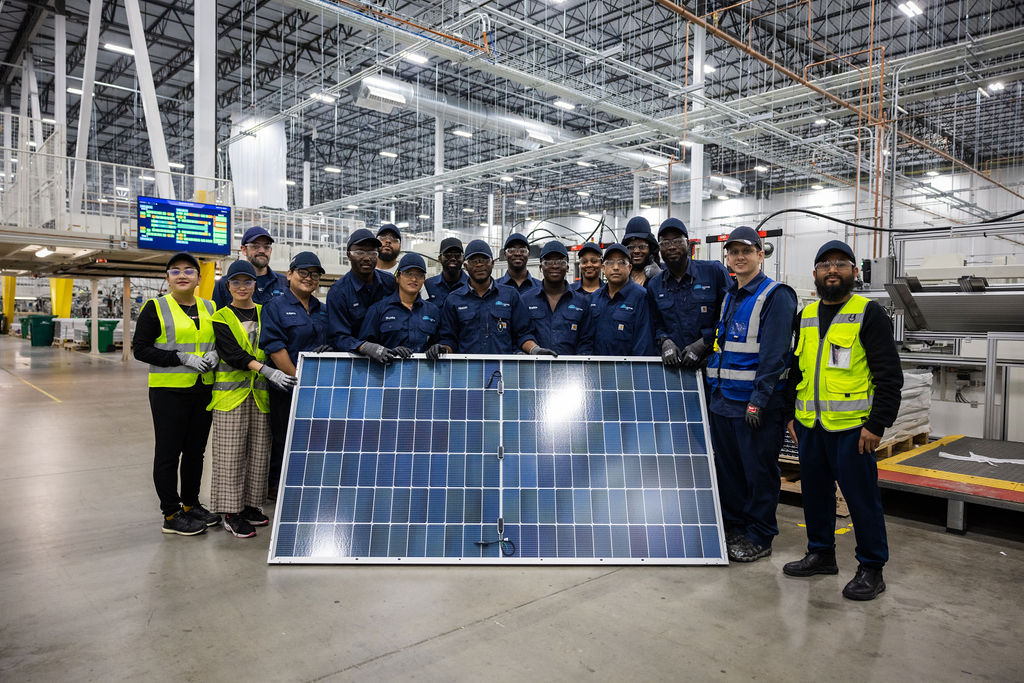Everything about Solar Companies In Virginia
Everything about Solar Companies In Virginia
Blog Article
Solar Panel Quotes Virginia: Lumina Solar Focuses On Offering Advanced Photovoltaic Solutions For Houses And Services
History and Founding
Have you ever questioned how a solar panel business springs from a mere trigger of motivation into a powerhouse of sustainable energy? It often begins with a vision-- one fueled by a mix of development, decision, and a pinch of serendipity. The journey of lots of solar companies mirrors the evolution of the innovation itself: from bulky, inefficient panels to smooth, high-efficiency marvels utilizing the sun's bounty.
The Early Days
In the late 20th century, when solar energy was still a niche idea, leaders planted seeds for what would end up being a global motion. Envision a little workshop filled with curious engineers, relentlessly try out photovoltaic cells. Their enthusiasm was palpable, typically driven by a desire to combat climate modification and reduce reliance on nonrenewable fuel sources.
One such anecdote has to do with a creator who, influenced by a camping trip, recognized that even in remote locations, the sun could power vital gadgets. This basic observation sparked a business's objective to equalize access to tidy energy.
Establishing Principles

- Innovation: Constantly pushing the boundaries of solar innovation to enhance performance and toughness.
- Sustainability: Devoting to eco-friendly production and minimizing carbon footprints.
- Ease of access: Making renewable resource options budget-friendly and practical for everyday users.
Milestones in Development
| Year | Key Occasion |
|---|---|
| 1985 | Business established in a small garage, concentrating on research and advancement. |
| 1995 | Very first commercial solar panel item launched, getting regional attention. |
| 2005 | Broadened to worldwide markets, welcoming worldwide sustainable energy goals. |
| 2015 | Introduced cutting-edge solar panel innovation with boosted energy conversion. |
Isn't it fascinating how these incremental actions, frequently neglected, form the energy landscape today? The solar panel business story is not almost innovation; it's about a relentless mission for a brighter, cleaner future.

Developments in Solar Panel Technologies
Ever seen how some solar panels gleam brighter and last longer? It's not magic; it's the science of photovoltaic performance. Modern photovoltaic panel business invest heavily in innovations like bifacial cells, which capture sunshine from both sides, improving energy harvest without broadening roofing space. Have you ever questioned why some panels perform much better on cloudy days? That's due to advances in thin-film solar innovation, read more which flourishes under diffused light conditions.
Product Variations Tailored to Unique Needs
One size never ever fits all. Photovoltaic panel service providers now offer:
- Monocrystalline panels for optimum efficiency and streamlined visual appeals, suitable for space-constrained rooftops.
- Polycrystalline panels, which offer an economical option without sacrificing too much output.
- Building-integrated photovoltaics (BIPV), merging solar tech effortlessly into architectural aspects like windows and facades.
Selecting the ideal product isn't practically upfront expense; it's about matching your environment, energy objectives, and long-term savings. For example, homes shaded by trees need panels that excel in low-light circumstances, something numerous neglect up until energy bills climb up all of a sudden.
Technical Tips for Optimum Selection
- Evaluate the temperature level coefficient-- lower values suggest panels lose less performance on hot days.
- Try to find panels with enhanced anti-reflective finishes to maximize light absorption.
- Think about the panel's service warranty not simply for flaws, but for guaranteed power output over decades.
- Do not ignore the significance of the inverter technology coupled with the panels; it can make or break your system's efficiency.
Beyond Panels: Emerging Patterns
Picture solar panels that change their angle instantly to go after the sun-- tracking systems are ending up being more available, increasing yield significantly. Or solar tiles that blend undetectably into your roofline, transforming your home into a quiet, self-dependent power generator. These developments are reshaping what a solar panel company uses-- not just products, but integrated energy services.
Market Presence and Global Operations
Ever wonder why some solar panel companies seem to sprout up in every corner of the globe while others barely make a ripple? The difference lies not just in technology but in mastering the art of navigating diverse markets. Broadening globally resembles planting seeds in various climates-- you should comprehend each environment's special conditions to prosper.
Take, for circumstances, the intricate dance of logistics and supply chain management. Delivering panels halfway across the world isn't practically range; it has to do with timing, customizeds, tariffs, and adapting to regional demand variations. A business with robust global operations expects these variables, guaranteeing panels get here on schedule without pumping up costs. This foresight is no little accomplishment and often separates industry leaders from fans.
Secret Methods for Expanding Market Presence
- Localized manufacturing: Developing production hubs near target audience minimizes shipping hold-ups and import complexities.
- Strategic collaborations: Teaming up with local firms accelerates market penetration and constructs trust.
- Adaptive item style: Customizing photovoltaic panel tech to weather, sun strength, and facilities nuances improves performance and acceptance.
What about the human aspect? Solar panel business operating globally must reconcile cultural distinctions and regulative subtleties without losing sight of their core objective. What works in a sun-drenched desert may falter in a humid coastal area. Sometimes, the most innovative solution is just listening-- taking in regional insights to fine-tune innovation and technique.
Experts often encourage a phased rollout instead of a shotgun expansion. Why run the risk of overextension when determined growth builds sustainable momentum? Scaling wisely indicates balancing aspiration with operational resilience - Solar Companies in Virginia. After all, in the race for sustainable energy dominance, perseverance can be as important as speed
Ecological Impact and Sustainability Practices
When photovoltaic panels first emerged, many presumed they brought zero environmental baggage. The reality is more nuanced. The production of photovoltaic cells includes uncommon earth metals and energy-intensive processes, which can leave a substantial carbon footprint before the panels even reach rooftops. The true environmental expense depends greatly on the sustainability practices employed by the photovoltaic panel company throughout the lifecycle of their items.
How often do we pause to consider what happens to photovoltaic panels at the end of their useful life? Unlike batteries or electronics, photovoltaic panels can last 25-30 years, however disposal and recycling pathways stay underdeveloped in many regions. A business dedicated to reducing ecological harm will have a robust strategy for recycling photovoltaic materials, salvaging important silicon, glass, and metals to avoid garbage dump build-up.
Key Sustainability Strategies
- Making use of low-impact production strategies that reduce water and energy intake.
- Implementing closed-loop systems to recycle production waste back into new panels.
- Participating in transparent supply chain audits to ensure ethical sourcing of raw materials.
- Creating panels for easier disassembly to aid future recycling efforts.
It deserves noting that some solar companies have pioneered innovative approaches, such as integrating naturally degradable components or using less poisonous chemicals throughout fabrication. This not just decreases environmental pressure however also sets a precedent for the market. The concern stays: can the solar industry genuinely pivot towards a circular economy model without sacrificing performance or affordability?
Expert Tips for Evaluating Sustainability
- Inquire about the company's commitment to carbon-neutral manufacturing and whether they offset emissions.
- Examine if they partner with accredited recycling centers devoted to solar panel waste.
- Try to find openness reports detailing ecological effects and sustainability goals.
- Consider the durability and service warranty of panels as an indirect measure of resource performance.
In the end, opting for solar energy must indicate more than simply slashing electrical power costs; it's about supporting a future where energy is gathered responsibly and waste is thoughtfully managed. Solar panel business that embrace this approach not just light up homes but likewise cast a brighter light on sustainable development.
Report this page